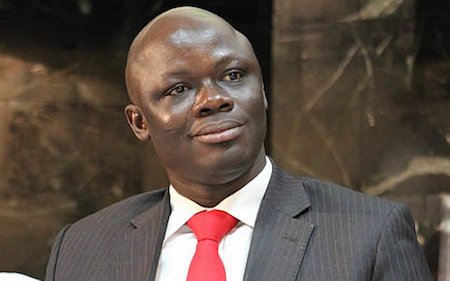The decision by an Accra District Magistrate Court to prevent journalists from hearing the case of Daniel Asiedu and another suspect in the murder of former Member of Parliament (MP) for Abuakwa North constituency was within its right, private legal practitioner, Samson Lardy Ayenini has argued.
The magistrate, Arit Nsemoh on Thursday warned journalists not to cover the proceedings of the trial and further ordered the Police to stop all journalists from entering the courtroom.
Though it is not clear what led to the order, many have criticised the decision with some journalists serving notice of a petition with the Association of Judges and Magistrates about the incident.
But according to Mr Ayeynini, what the court did was akin to deciding to hear a case in chambers which is very much supported by law.
Giving his take on Newsfile on Saturday, the lawyer quoted parts of Section 102 of the Courts Act to support his point, it states "nothing shall prevent a court or tribunal from excluding from the proceedings, persons other than the parties to the case or action and their counsel to such an extent as the court or tribunal may consider necessary or expedient in circumstances where publicity will prejudice the interest of justice or any interlocutory proceedings or in the interest of defence, public safety, public morality and welfare of persons under age of majority or the protection of the private lives of persons concerned in the proceedings."
Since, in his opinion, the reportage on the J.B. Danquah murder case over the weeks may have been prejudicial, the court's decision not to allow journalist into the courtroom may be in the interest of the trial and "should not be bastardised as we typically so often do".
He, however, wished that court would have resorted "to correction and caution to the offending media houses" rather than a blanket prevention of all media houses.
"I wish the court had explained its decision to the journalists owing to the public interest in the case. Notwithstanding, it was not bound. It may be bound only to those who are directly affected by the case when it decides to conduct proceedings in chambers", he stated.
Â





